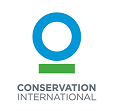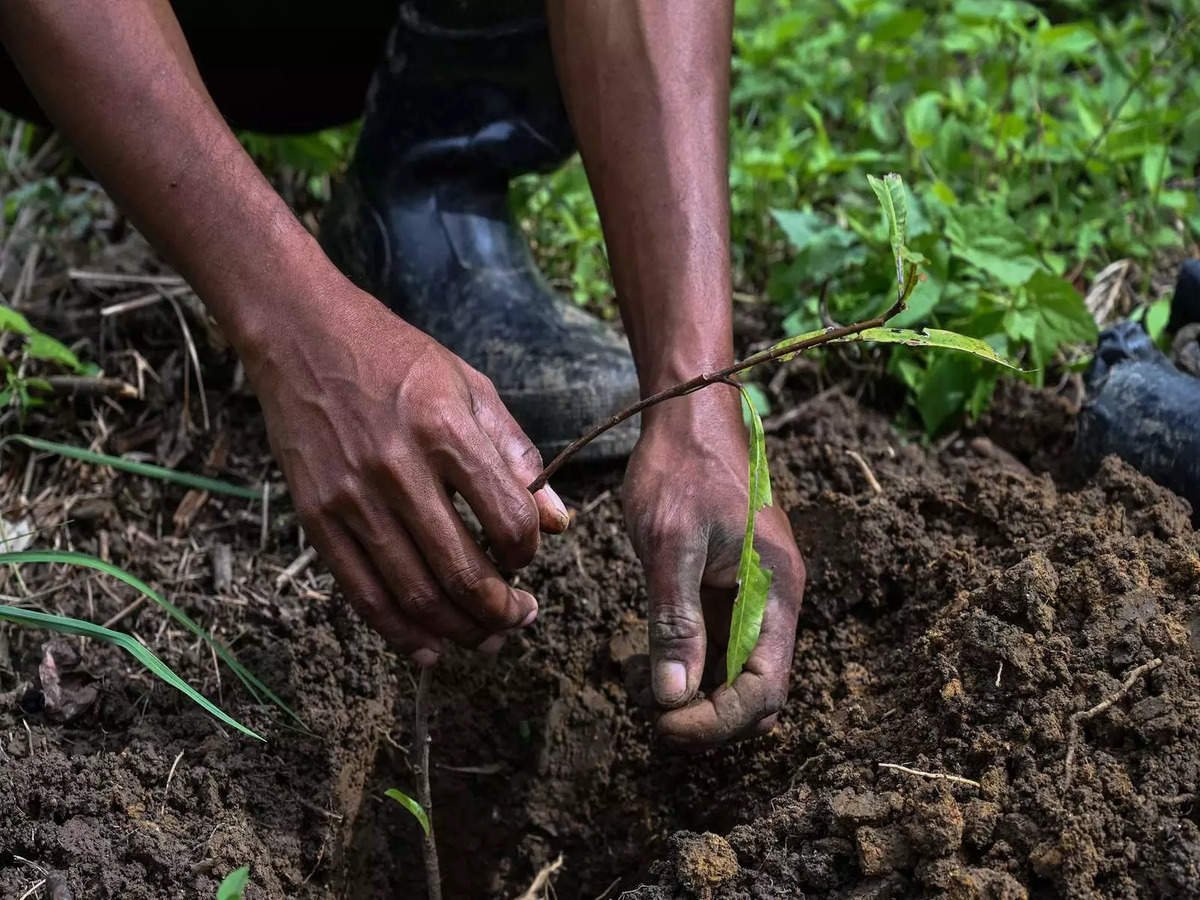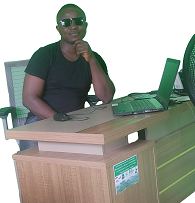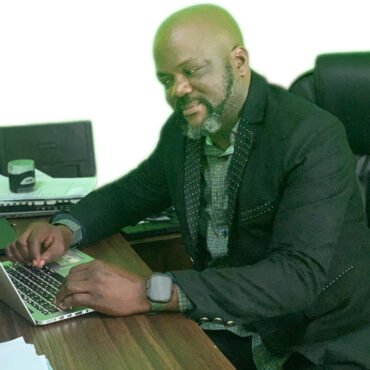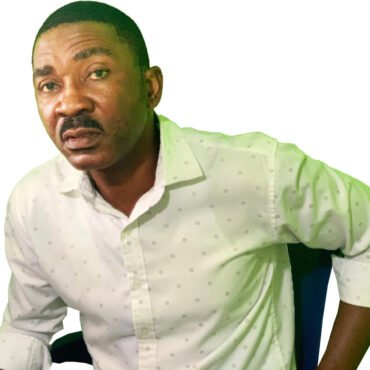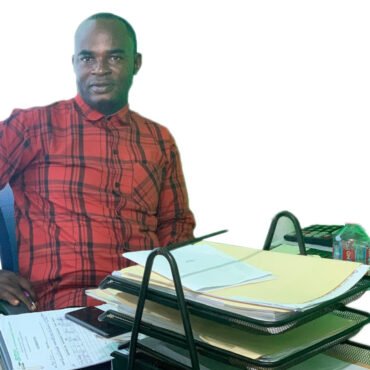
Our Institution History
Founded in 26, the Society for Environmental Conservation of Liberia (SECL) works to promote sustainable environmental practices, conserve biodiversity, and enhance natural resource management across the country..
The Society for Environmental Conservation (SEC) is a registered civil society organization in Liberia, with registration number MFDP/NGO/AC/: 0187. It was founded in 2006 and officially registered in Monrovia on January 29, 2008. SEC’s mission is to advocate for environmental justice and promote sustainable ecological practices through participatory development. The organization focuses on creating equal opportunities and fostering a strong sense of community ownership.
SEC works across four key sectors:
-
- Forestry and Natural Resources Management
- Sustainable Livelihood, Agriculture, Energy, and Climate Change Adaptation and Mitigation
- Environmental Justice
- Biodiversity Conservation
A major focus of SEC’s Forestry and Biodiversity Conservation program is to ensure the sustainable management of Liberia’s remaining tropical rainforests while empowering local communities. The program encourages equitable distribution and long-term care of natural resources for the benefit of both the environment and the people living in biodiversity-rich areas.
With a team of six permanent staff members, including four professionals dedicated to natural resource management, biodiversity conservation, livelihoods, and environmental justice programs, SEC operates with solid financial practices. The organization’s finances are managed according to a Standard Operating Procedure (SOP) and are audited annually by external firms. Financial officers ensure the transparent use of institutional funds.
People Choose Us
About the Society for Environmental Conservation (SEC): Pioneering Ecological Justice and Sustainable Development in Liberia since 2006
Unmatched Quality & reliability
In advancing environmental justice and sustainable development.
Proven Environmental Impact
Its proven track record in delivering impactful, community-driven environmental solutions.
SEC has it’s headquarter on S. D Cooper Road, Paynesville County- Montserrado County and maintain sub –office in Nimba and Grand Cape Mount Counties.
BEFORE
Hover Box Element
Swamp Development (RICE) in Garley Town Grand Gedeh County. Providing sustainable livelihood for the forest dependent around Liberian Greenbul Habitat located around Cavalla Rive (land preparation & layout)
AFTER
Hover Box Element
Swamp Development (RICE) in Garley Town Grand Gedeh County. Providing sustainable livelihood for the forest dependent around Liberian Greenbul Habitat located around Cavalla River.)
SEC’s primary objective is to find new ways that poor rural dwellers living in abject poverty around high biodiversity heritage can generate income while conserving their natural ecosystem .
SEC's PHILOSOPHY
In pursuant of its mission, SEC work with the poor themselves at the communities’ level and with international partners who share its vision. The organization engage in long term development work; respond to emergency situations and undertake program that address the root causes of structural poverty. It carryout biodiversity research, conservation education and development programs that empower local people to be self-reliance by identifying their own development priorities and assist them to mobilize resources and assume the responsibility to manage and control those resources on which they depend. SEC also undertakes environmental justice that will assure just benefit and resolve issues that may arise into conflict within concession sites.
As a result its years of activity, SEC is recognized by the Government of Liberia and international organizations as a key partner for the Sustainable Livelihoods, Agriculture, Forestry, Biodiversity Conservation, environmental justice and Climate Change mitigation and adaptation.
VALUES:
SEC is an institution that strongly believes in concerted effort of community, local and international organization for the success of its aim and objectives. SEC always promotes and adheres to transparency, honesty, discipline, hard work and accountability as main code of conduct.
Cont from (PROGRAM/ ACTIVITIES
B. Biodiversity conservation awareness
- Environmental / conservation awareness.
- Discourage Land Degradation
- Create and support an innovative platform at community, county and natural level to discuss and resolve broader issues that affecting.
- Establish schools conservation education/ nature club
- Facilitate the formation of community conservation Society and empower them.
- Create awareness on the perceiving values of species within high biodiversity heritage.
- Human – Wildlife conflict resolution within the high biodiversity sites.
C. Climate Change
- Adaptation
- Mitigation
D.. Encourage Forestry Activities
- Community Forestry
- Community Woodlot
- Tree planting /Reforestation/ forestation.
- Encourage backyard Garden
- Encourage lowland farming
E. Energy Conservation
- Train communities, individual and institution on the usage and production of eco- stove, solar cooker and biogas technology.
- Establish community woodlot
F. Training
- Transformation
- REFLECT/ PRA/PVA methodologies.
- Reforestation
- Sustainable Agricultural Practices
- Eco-stove
- Tracking
- Biological monitoring and data gathering.
- Internship program
G. Research
- Population density of species
- Data collection
- Species distribution and status studies.
- Determine migratory route of species
- Correlation and analysis of data gathered.

SEC envisions seeing Liberia rich biological sites are as of importance to community dwellers at local and national levels in conservation and sustainable planning. This is pursued through an educational and empowering process in which the people in partnership with each other and those able to assist them identify their priorities, mobilize resources and assume the responsibility to manage and control the environment where they live and depend on.
SEC uses community participatory engagement techniques to help especially rural people to identify their problems and needs. Information gathering is focused on the environmental elements, social issues and sustainable development of the people. The purpose of our extensive background research/survey is to ensure that SEC understands the social and physical environment in which they are working in order to employ best practice in the implementation of resonating programming and for creation of capacity surrounding awareness, empowerment and to influence policy making.
SEC has worked in Seven counties (Gbarpolu, Sinoe, Nimba, River Gee, Grand Gedeh, Lofa and Grand Cape Mount Counties), and considers everyone within the borders of the Republic of Liberia as integral to the implementation of its program, in adherence to the laws of the Republic of Liberia, especially those governing NGOs operations
GOALS AND OBJECTIVES
To conserve and promote sustainable forest resources.
- To develop and support the community by empowering them.
- Raising the perceiving value of high biological site that are under threats of exploitation of natural resource.
- Poverty alleviation through improving livelihoods of forest dependent communities.
- Work in collaboration with Protected Areas Management Authority to establish Community Conservation Society and School Nature Club which will enable data gathering and the safeguard our natural resources.
- Linking sustainable practices to increase community household income through strengthening values chains thus providing tangible incentives for the adoption of these practices.
- Developing strategies with local and international partners to better tackle the issues of degrading activities on the environment.
PROGRAMS & ACTITITIES
A. Sustainable Livelihoods
Agro- Industry/ Forestry/Alternative livelihood
- Bee Keeping
- Grass cutter rearing
- Snail rearing
- Mushroom keeping
- Climate Smart Agriculture
- Aquaculture (Fish Pond, Swamp development and wetland conservation)
- Other innovative technology for Non – Timber Forest Product (NTFP).
- Organic Farming Systems
- Vegetable production
H. Ecotourism
- Assessment of suitable sites for ecotourism
- Hiking, sport hunting
- Safari hunting
- Bird watching,
- Backcountry visitation,
- Animal viewing/wildlife viewing
Issues: poverty is widespread and concentrated both in urban and rural Liberia, with nearly two million Liberians, mainly women, children and marginalized youths living in extreme poverty and hunger. The vast majority depend on agriculture and related activities to survive.
Goal: the overarching goal of SEC’s Sustainable Livelihoods and Food Security program is to empower both rural and urban poor to achieve higher incomes and improved food security at their household level and to reduce pressure on the remaining forests. SEC provide training in agriculture and livelihood development; agribusiness and extensions services including crops and livestock production, agro forestry, aquaculture as well as do research, undertake, monitor and evaluate livelihoods and agricultural programs focusing o environmentally friendly, socially responsible and economically sound production of food and fibers based on natural and local conditions. Key features of our Sustainable Livelihoods and Food Security program are: Crop Rotations, Intercropping, Integrated Biological Pest Control; Introduction of Resistant Varieties; Erosion Control; Water Management; Nutrient Recycling; Alternative Development and promotion of environmental services of agriculture in addressing climate change and biodiversity conservation. In all of these agricultural and sustainable livelihoods activities, the organization is guided by the following seven principles: .
- Provide microfinance to empower poor people to lift themselves out of poverty;
- Work with farmers and community members directly;
- Treat farming as a family business, acknowledging that communities are linked to markets and that farm families need income for off-farm products and services;
- Focus on farming systems, supporting diverse production – crops, livestock, trees and fish;
5 Promote agricultural practices that do not deplete or damage resources, linking production to conservation as well as integrating climate change mitigation strategies in local food production systems;
- Use watershed approaches, fostering cross-community collaboration for resource protection natural disaster mitigation, and upstream/downstream cooperation to meet competing water needs.
7). Ensure immediate benefits and invest in long-term production. All of these programs are based on assessments of local needs, opportunities, and key limiting factors.
Need Any Environmental Services?
Call Us Today: + (231) 886 938813
- +231886 938813HOTLINE
- +231886 938813HOTLINE
- +231886 938813HOTLINE
Worked We Have Done
Hard Working People


